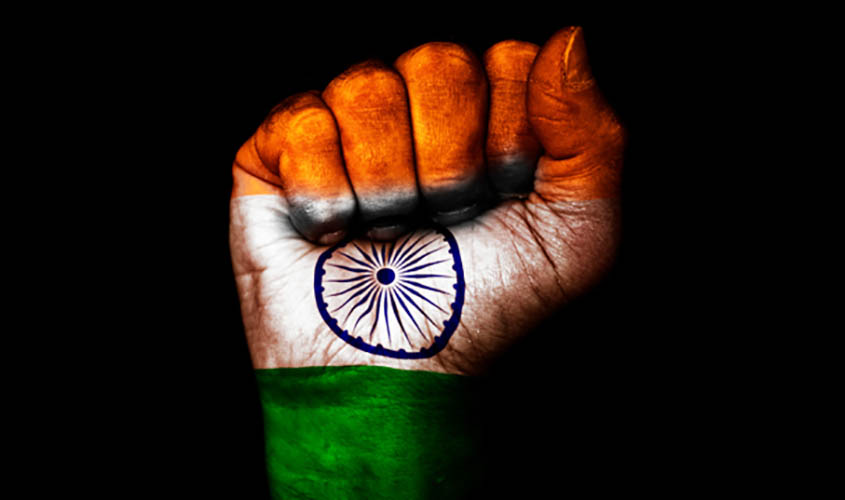Liberty is often a big casualty in the petty quarrels among unscrupulous politicians, publicity seekers and tetchy busybodies. It is perhaps for the first time that it has become a beneficiary of politicking. In a bid to badger the Congress, the Central government has upheld the freedom of thought and expression.
In the Delhi High Court, the Centre expressed its inability to order service providers to cut an allegedly objectionable word against former Prime Minister Rajiv Gandhi used in the Netflix series Sacred Games. The Ministry of Electronics and Information Technology filed an affidavit in the HC, saying, “[I]t is humbly submitted that the Preamble of the Constitution of India inter alia speaks of liberty of thought, expression, belief, faith and worship. It also says that India is a sovereign, democratic republic. The liberty of thought and expression is a cardinal value that is of paramount significance under our Constitutional scheme.”
The Narendra Modi government described liberty of thought and expression as a “cardinal value”, which “is of paramount significance under our Constitutional scheme”. For, both the government and its functionaries, along with several leaders of the ruling party, have frequently sided with the foes of such freedoms. In this instance, however, it suddenly became a champion of liberty. An advocate, Nikhil Bhalla, had moved the court to direct Netflix Entertainment, the show’s producer Phantom Films Production Ltd, and the Centre to ensure “in toto” excision of the allegedly offensive scenes. The first season of the show starred Saif Ali Khan and Nawazuddin Siddiqui. Released in July, it is available in four languages.
The petitioner claimed that the show “incorrectly depicts historical events of the country like the Bofors case, the Shah Bano case, the Babri Masjid case, and communal riots.”
Somebody should ask people like Bhalla as to what the “correct” depiction of historical events is. Every event has several interpretations. Communal riots, for instance, are described by different people in different ways. From the Left-liberal perspective, all Hindu-Muslim violence has a single source—the Sangh Parivar. They are likely to see some RSS role even in the Great Calcutta Killings on Direct Action Day (16 August 1946), though it is clear as day that the Muslim League had planned and executed the mayhem.
All the instances mentioned by the petitioner have attracted the attention of not only creative people but also scholars and authors. Often their accounts are diametrically opposite to each other. So, should we wait the correct interpretation of these, and other occurrences, to emerge first and only then filmmakers be allowed to do anything about them?
But the problem is that it may take an inordinately long time for the correct viewpoint to emerge. Former Chinese Premier and Mao’s crony Zhou Enlai was once asked about his view on the impact of the French Revolution (1789). He replied that it was “too early to tell”!
It needs to be emphasised here that the petitioner is not the only person who wants incorrect versions of events to be outlawed; there is an army of illiberal activists, both on the Right and the Left, that want only their own viewpoints to propagated. Those on the Right impose their illiberality on others in a crude and coarse manner—by indulging in violence, vandalism, etc. Those on the Left are sophisticated; they use casuistry, argumentum ad hominem (not attacking the argument but the arguer by imputing motives to his or her line of thinking), and intellectual ostracisation. The result always has been the same: shrinking of the sphere of liberty.
This time, however, the government, which adopted an illiberal stance in the Section 66A and privacy cases, has favoured a very correct and liberal approach, albeit to needle the grand old party.

